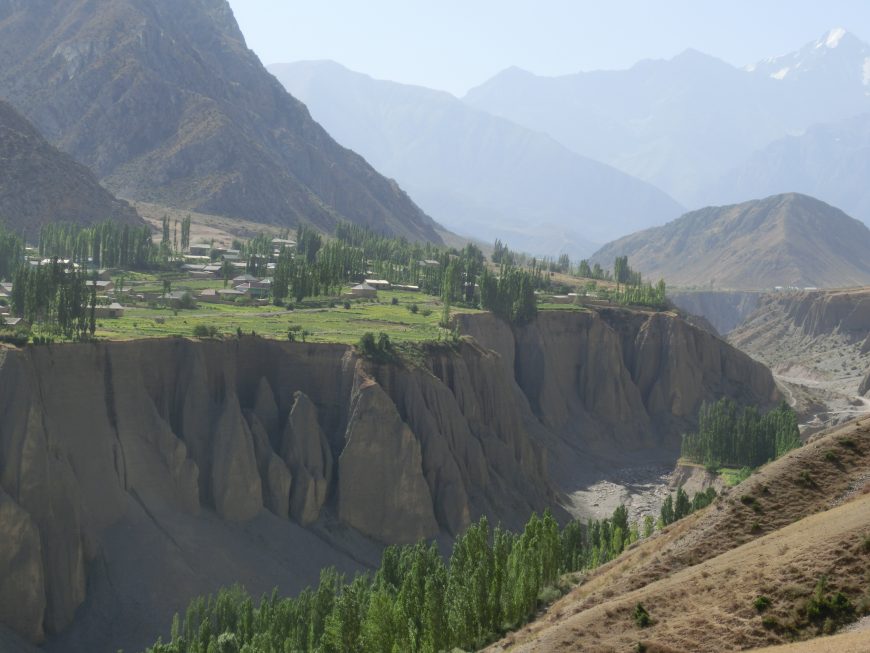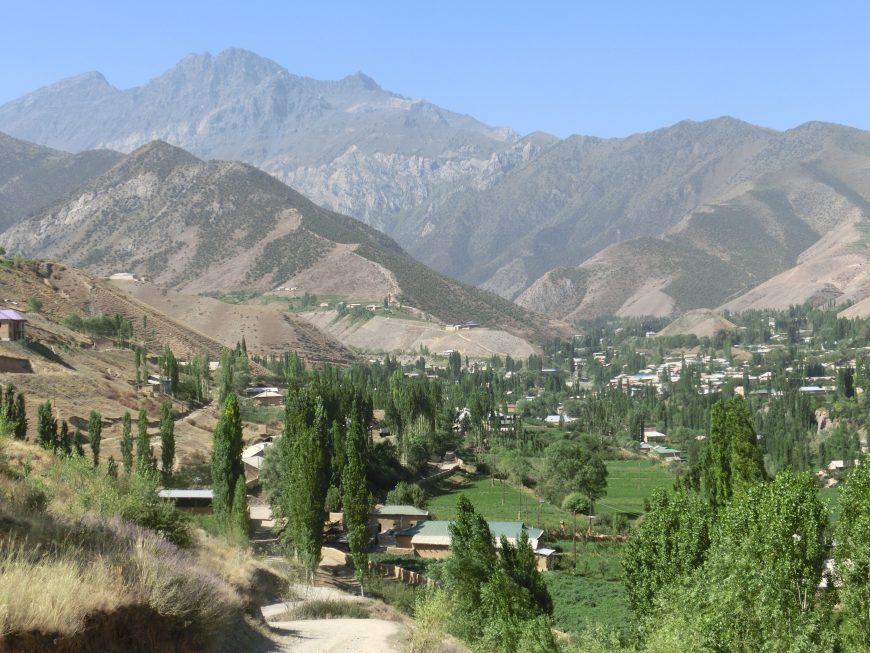The official borders of Tajikistan and Kyrgyzstan are the legacy of a controversial Soviet-era initiative, the National Territorial Delimitation (NTD), which sought to divide Central Asia into ethnically homogenous republics.
Unfortunately for those living in border areas, this approach paid little attention to how communities were meant to manage natural resources, such as rivers, which traversed these man-made borders.
Unresolved challenges stemming from the ownership and management of common source remain a source of conflict in border communities. They also represent an opportunity to unite cross-border communities through their shared interest in preserving the natural environment for future generations.
In 2019, ACTED brought together environmental groups from both sides of the Tajik-Kyrgyz border to share practices on protecting and preserving the ecosystems of the Ak-Suu watershed of the Syr Darya River.

Tensions at the source
Over 400km of the border between Northern Tajikistan and Southern Kyrgyzstan remain unofficially delimited; meaning there is no official, mutually-agreed border. This arrangement complicates cooperation between communities on either side of the borders over land, water and other resources.
Since the collapse of the coordinated Soviet water management institutions and infrastructure, water and land use has become fragmented, inequitable and ecologically unsustainable. This has led to damage to ecosystems, increased the risk of natural disasters and exacerbated tensions between upstream and downstream villages.

Common Water, Common Ground
In summer 2019, ACTED held meetings bringing together community-based groups, including Pasture Associations, Forestry Committees and Disaster Preparedness Committees from either side of the Tajik-Kyrgyz border.
The events emphasized the fact that the natural environment is not bound by geopolitical borders: communities on either side have a common interest in protecting their shared ecosystems and natural resources. They also created an opportunity for Tajik groups to learn lessons from their peers in Kyrgyzstan, where environmental preservation structures are better developed and institutionalized.

Building bridges for future cooperation
Participants of the meetings not only exchanged knowledge through presentations and discussions, but made steps towards committing to joint environmental protection measures:
- Forestry experts decided to extend the reach of Kyrgyz Sarkent National Park to create a special transboundary protected forest area, and came up with the joint slogan “Forest is father of water, water is mother of harvest!” to express their shared interest in preserving forests;
- Disaster Preparedness Committees exchanged phone numbers and set up cross-border warning groups on WhatsApp and Viber, which will be used to communicate updates and warnings on potential disaster threats;
- Pasture Committees decided to strengthen their future technical cooperation, following fruitful discussions on sustainable livestock and farming methods and ways to tackle the issue of overgrazing;
These events served as platforms for dialogue and relationship building, essential to ensuring the sustainable management of the river basin ecosystems for the wellbeing of future generations on both sides of the border.

The knowledge exchange component of these meetings has been invaluable. Discussing and exchanging best practices is the most efficient way to learn and develop new methods and techniques. The meetings organized by ACTED created space for this.
The “National Water Resources Management” project in Tajikistan, funded by SDC and implemented by Helvetas, ACTED and GIZ, aims to protect communities from natural disasters, waterborne disease, water scarcity and water-related conflicts through an inclusive, integrated approach to natural resources management. The success of such efforts depends on fostering cooperative cross-border relations within the river basin.